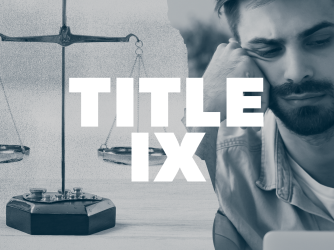Table of Contents
At University of Nebraska-Lincoln, Cancellation of Ayers’ Speech Raises Troubling Questions
This past Friday, the University of Nebraska-Lincoln (UNL) announced the cancellation of a November speech by William Ayers, citing unspecified "safety concerns" as grounds for the move. According to UNL's statement, the school's "threat assessment group" had been monitoring e-mails and had received "other information" suggesting a potential threat to security. No further details have yet been provided.
Ayers is currently a professor of education at the University of Illinois at Chicago. He was also a founding member of the Weather Underground, a group responsible for bombing the Pentagon, the U.S. Capitol, and other government buildings in the 1960s and 70s. Ayers faced federal charges related to his participation in the group's activities, but they were dropped in 1974 due to prosecutorial misconduct. In recent months, Ayers' past has been the subject of national conversation due to his interactions with Senator Barack Obama of Illinois in the 1990s, when the two served as board members for two non-profit organizations dedicated to educational reform and anti-poverty efforts in Chicago.
Amid the continuing controversy over Ayers' past, the cancellation of his speech raises troubling questions about UNL's commitment to freedom of expression on campus for several reasons.
First, as FIRE has repeatedly stated to many different schools in many different contexts, conditioning the right to speech on the reaction of the audience is a violation of the right to free expression. Doing so is tantamount to instituting a "heckler's veto" on campus, whereby the most sensitive or violent members of a potential audience are effectively allowed to determine whether or not a controversial speaker may speak. Indeed, we reminded Central Michigan University of this principle earlier this month, when the school required a conservative student group on campus to pay for the additional security needed to host a speech by conservative activist and author David Horowitz, whose appearances often prompt student protests. In this case, if the cancellation of Ayers' speech at UNL was due to fears of a violent reaction on campus, as it purportedly was, UNL has failed to meet its legal obligation to uphold the First Amendment on campus. By allowing threats of violence to dictate which speakers will and will not be allowed to speak, UNL has created a dangerous incentive for audience members to threaten violence in response to speech they do not like, as doing so will serve to rid from campus the expression of particular speakers or viewpoints. This result is intolerable in a free society like ours and violates our Constitution.
Perhaps even more troubling, however, is the distinct possibility that UNL is citing security concerns as pretext for cancelling Ayers' speech under political pressure. As InsideHigherEd.com reports today, Ayers' planned appearance had been criticized earlier last Friday by Nebraska Governor Dave Heineman, a Republican, as well as Attorney General Jon Bruning. In a statement issued Friday afternoon, Governor Heineman called the invitation to Ayers an "embarrassment to the University of Nebraska and the State of Nebraska." Attorney General Bruning also called Ayers' speech an "embarrassment," stating further that "[a]cademic freedom doesn't require us to lose our good judgment and common sense." According to InsideHigherEd.com, alumni and donors echoed these sentiments, and the Chair of Nebraska's Board of Regents also called for Ayers to be disinvited. Hours later, UNL cancelled the speech.
While FIRE is, of course, not privy to the details known to UNL's "threat assessment group," it is hard to imagine that security for a speech nearly a month away could not have been arranged. If the significantly smaller University of Nebraska-Kearney is able to host a speech by a former President of the United States, surely UNL could manage to make arrangements for a professor of education, no matter how controversial.
If UNL decided that hosting Ayers' speech was simply too politically unpalatable a choice to defend, it should have said as much. UNL would have been forced to endure the shame that it rightfully would have earned by allowing political pressure to dictate who may speak on campus, but at least the school would have retained its intellectual honesty and avoided playing politics with school safety. In contrast, if UNL is citing "safety concerns" simply to avoid criticism for caving to political considerations, it is setting a dangerous precedent. Invoking the threat of violence as justification where it does not actually exist serves to trivialize the necessary gravity of real security concerns, and grants far too much power to administrators to cite vague and unverifiable threats any time the university wants to shut down an event with which it is merely uncomfortable. The safety of a university community should not be cited to provide cover for purely political decisions.
UNL's rapid retreat from Ayers' speech has garnered the school national attention. The country will now judge whether or not the school acted out of genuine concern for student safety or just plain old politics. Whatever the verdict, one fact is already clear: At a bare minimum, UNL's actions raise serious and troubling questions about the university's commitment to academic freedom and freedom of expression.
Recent Articles
FIRE’s award-winning Newsdesk covers the free speech news you need to stay informed.


FIRE statement on campus violence and arrests

BREAKING: New Title IX regulations undermine campus free speech and due process rights
